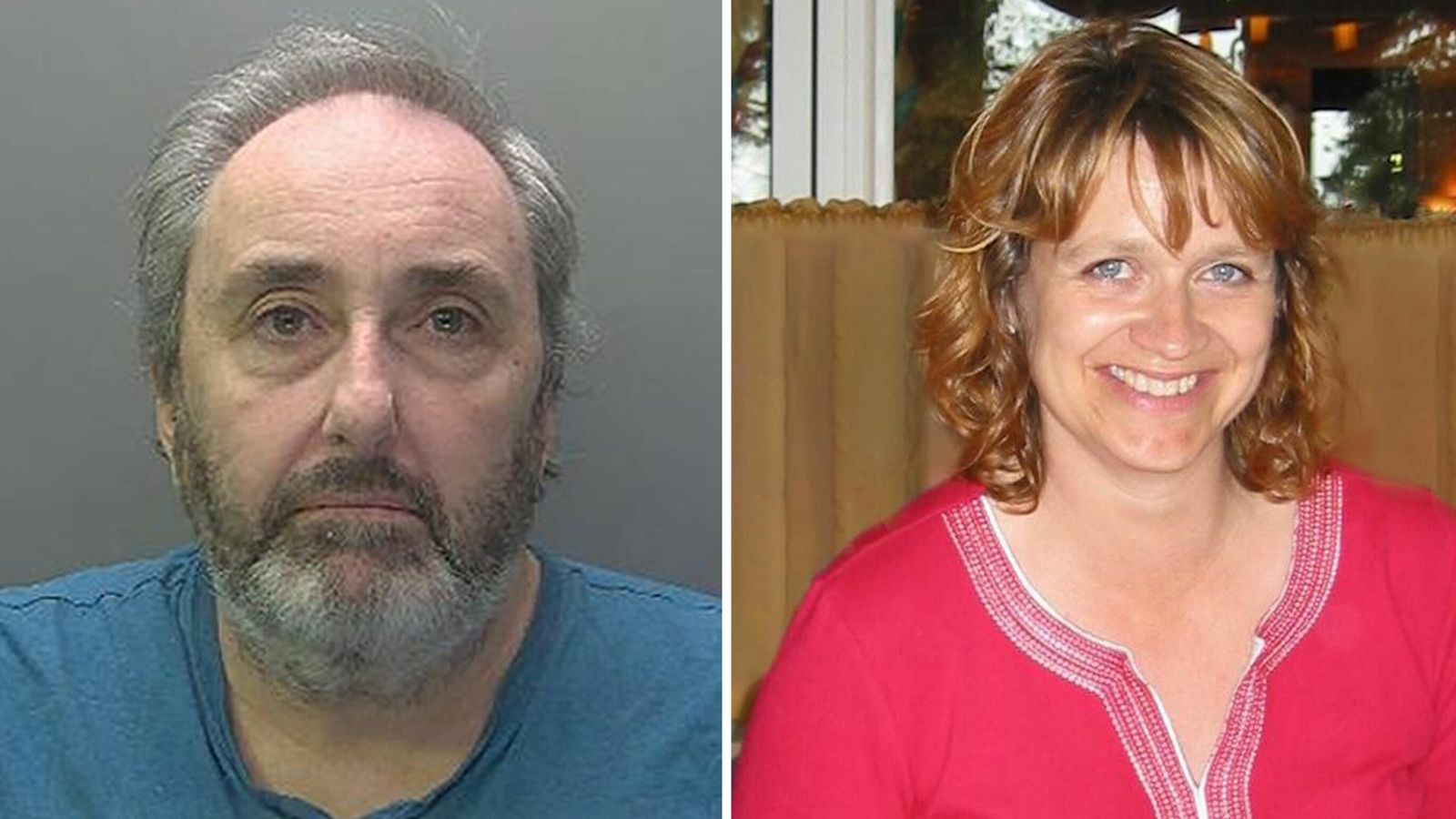A 61-year-old man has been found guilty of killing his wife in 2010, six years before he went on to kill his fiancee at their home in Hertfordshire.
Ian Stewart denied killing Diane Stewart who died at their family home in Bassingbourn, Cambridgeshire, on 25 June 2010.
The 47-year-old’s cause of death was recorded at the time as Sudden Death in Epilepsy (Sudep).
He told his trial at Huntingdon Crown Court that he found his wife collapsed in the garden when he returned from the supermarket.
He said he tried to revive her, attempted to contact neighbours who were a doctor and nurse, tried again to revive his wife, and then called 999.
Her death was not treated as suspicious at the time and although a post-mortem was carried out, it was not a forensic post-mortem.
Case re-opened after fiance’s murder
COVID-19: Final coronavirus rules including self-isolating after testing positive could end this month, PM says
COVID news live: ‘Crazy’ COVID vaccine requirement stopping Britons booking holidays to Spain and Canary Islands
Boris Johnson pictured alongside open bottle of alcohol at Downing Street Christmas quiz event amid ongoing partygate scandal
Police reopened the case after Stewart, 61, was convicted six years later of the murder of his fiancee, children’s book author Helen Bailey, whose body was found in the cesspit of the £1.5m home they shared in Royston in Hertfordshire.
He had spent weeks poisoning Ms Bailey with prescription sedatives before smothering her and dumping her body, where it lay undiscovered for three months alongside the body of her dog, Boris.
He stood to gain £1.8 million in investments – plus the value of two properties.
Stewart was found guilty of Ms Bailey’s murder at St Albans Crown Court in 2017.
As part of the police investigation following Stewart’s 2017 murder conviction, consultant neuropathologist Professor Safa Al-Sarraj was asked to examine preserved parts of Mrs Stewart’s brain, which had been donated to medical science.
Read more: The children’s author killed by the man she loved
Evidence she had been suffocated
Prof Al-Sarraj said there was evidence that Mrs Stewart’s brain had suffered a lack of oxygen prior to her death, and he estimated that this happened over a period of 35 minutes to an hour.
Prosecutor Stuart Trimmer QC said Mrs Stewart’s death was “most likely caused by a prolonged restriction to her breathing from an outside source”, such as smothering or a neck hold.
Although Stewart said he believed his wife had an epileptic fit, she had not had one for 18 years and took daily medication. Consultant neurologist Dr Christopher Derry estimated that her risk of having a fatal epileptic seizure was about one in 100,000.
The court heard that Stewart received £96,607.37 after his wife’s death, in the form of £28,500.21 from a life insurance policy and the rest from bank accounts.
Please use Chrome browser for a more accessible video player
He denied the murder of his wife, and during the trial at Huntingdon Crown Court he described his conviction for the murder of Ms Bailey as a “miscarriage of justice”.
Sons were out that day
The defendant looked across from the secure dock to his two sons who sat in the public gallery after the unanimous verdict was returned.
Both of the couple’s sons were out on the day of their mother’s death, with then 15-year-old Oliver at school and Jamie, then 18, taking his driving test.
Jamie Stewart had told the court that he recalled “raised voices… between my mother and father” when he was at home on study leave for A-levels the week his mother died.






















